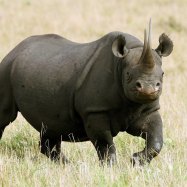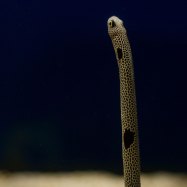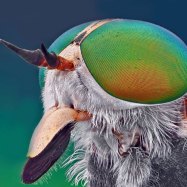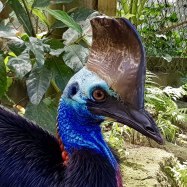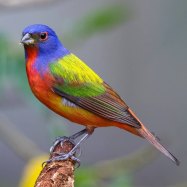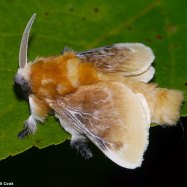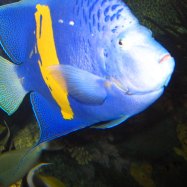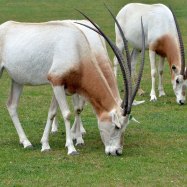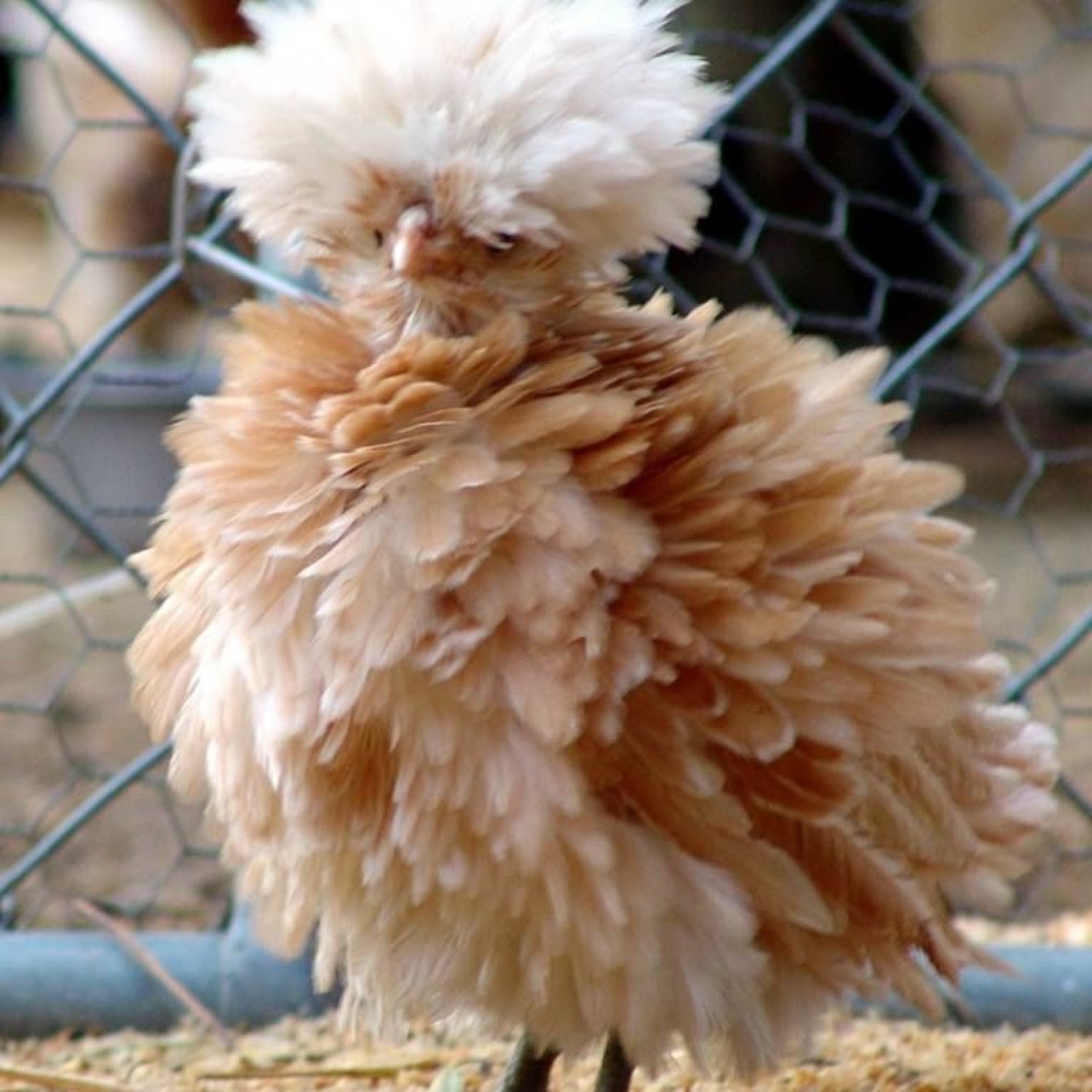
Frizzle Chicken
About 12-14 inches (30-35 cm)
The Frizzle Chicken, also known as the curly feather chicken, is a medium-sized bird with eye-catching ornamental feathers. Found in both urban and rural areas, these birds belong to the Phasianidae family and can grow up to 12-14 inches in length. With their unique appearance and friendly nature, they make great additions to any backyard flock. #FrizzleChicken #AnimalFacts #BackyardFlock
Animal Details Summary:
Common Name: Frizzle Chicken
Kingdom: Animalia
Habitat: Farmland, Backyards
The Marvelous Frizzle Chicken: A Fascinating Bird from Farmlands to Backyards
Have you ever heard of a Frizzle Chicken? If you haven't, you are in for a treat! This medium-sized, ornamental bird is making waves in the world of poultry farming and backyard chicken keeping. With their unique appearance, lively personalities, and productive nature, Frizzle Chickens have quickly become a favorite among farmers, hobbyists, and urban homesteaders alike.The Frizzle Chicken, also known as the Frizzle Bantam or Curled Chicken, is a domesticated chicken breed that belongs to the Phasianidae family. Its scientific name is Gallus gallus domesticus, and it is a common sight in most farmlands and backyard chicken coops Frizzle Chicken. However, there is still a lot to learn about this fascinating bird, so let's dive into the world of the Frizzle Chicken and discover what makes it stand out from the rest.
A Unique Appearance
One of the most striking features of the Frizzle Chicken is its appearance. Unlike most chickens that have smooth and sleek feathers, Frizzles have feathers that curve outward and backward, giving them a somewhat "frizzled" or "curled" look. This unique feather pattern is caused by a genetic mutation that affects the development of the feathers, making them bend in different directions.Frizzle Chickens come in various colors and patterns, making them a beautiful addition to any flock. Some of the most common colors are white, black, and brown, but they can also have unique patterns like speckles and stripes. These ornamental features add to the charm and appeal of this breed, making them a favorite among chicken enthusiasts.
Medium-Sized and Ornamental
In terms of size, Frizzle Chickens are considered medium-sized birds. They have a compact body with a rounded chest, a small head, and a thick and feathery neck Fox Squirrel. Their most striking feature is their ornamental feathers, which give them a regal and elegant appearance. Frizzles also have long and flowing tail feathers, adding to their overall beauty and grace.
On average, a Frizzle Chicken can grow to about 12-14 inches (30-35 cm) in length, making them an ideal breed for both backyard and farm settings. They are not too big, making them easy to handle and care for, but they are also not too small, ensuring that they can hold their own in a mixed flock.
Habitat and Geographical Distribution
As mentioned earlier, Frizzle Chickens are a common sight in farmlands and backyards around the world. They are highly adaptable birds and can thrive in a variety of environments, including urban and rural areas. This makes them an ideal breed for both novice and experienced chicken keepers.Originally, the exact country of origin of Frizzle Chickens is unknown, but they have been around for centuries, with various documented sightings in different parts of the world. Today, they can be found in almost every continent, except for Antarctica.
A Favorite Among Backyard Chicken Keepers
In recent years, Frizzle Chickens have gained popularity with urban homesteaders and backyard chicken keepers. Their unique appearance and friendly personalities make them a favorite among those looking for an ornamental bird with egg-laying capabilities.
Frizzles are also great for families with children as they are gentle and calm birds that can bond with their owners. They are also relatively easy to care for, making them a suitable breed for first-time chicken keepers. Plus, with their productive nature, Frizzle Chickens can provide a steady supply of fresh eggs for their owners.
Feeding and Habitat Requirements
Frizzle Chickens are omnivorous birds, meaning they can eat both vegetable matter and insects or small animals. Their diet should consist of a healthy balance of grains, seeds and fruits, along with access to fresh water at all times. They also enjoy a good dust bath to keep their feathers clean and healthy.For housing, Frizzle Chickens need a coop with enough space to move around comfortably. They also require a secure outdoor area to forage and exercise during the day. Although they can adapt to most temperatures, they need a dry, draft-free coop during colder months to avoid getting sick.
A Bird with Personality
Aside from their unique appearance, Frizzle Chickens are also known for their lively and friendly personalities. They are social birds that enjoy the company of other chickens and humans. They are curious creatures and can sometimes get into mischief, but overall, they are well-behaved and easy to handle.
One interesting fact about Frizzle Chickens is that they have a strong maternal instinct, even though they are not known to be good brooders. They tend to be attentive mothers and will fiercely protect their chicks if they feel threatened. This fierce nature is also seen in their interactions with potential predators, making them an excellent addition to any farm or backyard setting.
The Benefits of Raising Frizzle Chickens
There are many benefits to raising Frizzle Chickens, making them a popular choice among chicken keepers. Here are some of the top advantages of adding this breed to your flock:- Visually appealing: As mentioned earlier, Frizzle Chickens have a striking appearance, making a beautiful addition to any flock or backyard.
- Easy to handle: Due to their medium size and gentle nature, Frizzles are easy to handle and are suitable for families with children.
- Productive: Despite their ornamental feathers, Frizzle Chickens are productive layers, providing their owners with a steady supply of fresh eggs.
- Social and friendly: Frizzles are sociable and friendly birds, making them great for those looking for backyard chickens with personality.
- Good for pest control: As omnivorous birds, Frizzles will help keep pests like insects and small rodents in check.
Conservation Efforts for Frizzle Chickens
Despite their wide distribution, Frizzle Chickens are not immune to the threats of extinction. As with most chicken breeds, they are at risk of genetic drift due to inbreeding and the introduction of larger and faster-growing chicken breeds. This can lead to the loss of their unique traits and possibly their eventual disappearance.To prevent this from happening, there have been efforts to preserve the Frizzle Chicken breed. Organizations such as The Livestock Conservancy and The Frizzle Club have been dedicated to promoting and raising Frizzle Chickens, ensuring their survival for future generations.
Conclusion
In conclusion, the Frizzle Chicken is a fascinating bird with unique features that make it stand out from other chicken breeds. With its frizzled feathers and beautiful colors, it is a visually appealing addition to any flock. Frizzles are easy to handle, productive, and social birds, making them a great choice for backyard chicken keeping. However, it is important to support efforts for their conservation to ensure their survival for many years to come. So, the next time you come across a Frizzle Chicken, take a moment to appreciate this marvel of nature.

Frizzle Chicken
Animal Details Frizzle Chicken - Scientific Name: Gallus gallus domesticus
- Category: Animals F
- Scientific Name: Gallus gallus domesticus
- Common Name: Frizzle Chicken
- Kingdom: Animalia
- Phylum: Chordata
- Class: Aves
- Order: Galliformes
- Family: Phasianidae
- Habitat: Farmland, Backyards
- Feeding Method: Omnivorous
- Geographical Distribution: Worldwide
- Country of Origin: Unknown
- Location: Urban and Rural areas
- Animal Coloration: Various colors and patterns
- Body Shape: Medium-sized with ornamental feathers
- Length: About 12-14 inches (30-35 cm)
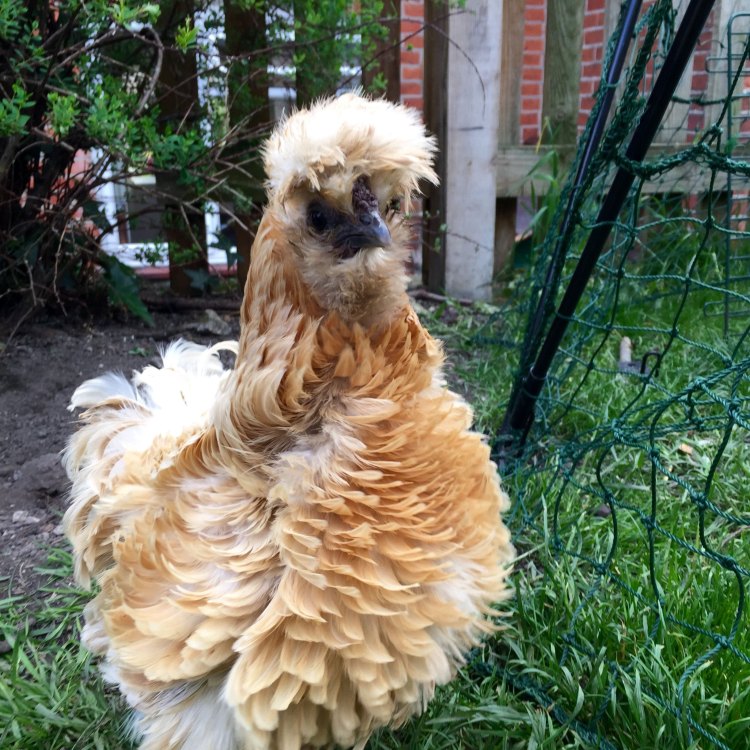
Frizzle Chicken
- Adult Size: Small to medium-sized
- Average Lifespan: 5-10 years
- Reproduction: Sexual
- Reproductive Behavior: Lays eggs
- Sound or Call: Varies by breed, often makes clucking or crowing sounds
- Migration Pattern: Non-migratory
- Social Groups: Flock
- Behavior: Curious and social
- Threats: Predators, disease
- Conservation Status: Not Evaluated
- Impact on Ecosystem: Seed dispersal, insect control
- Human Use: Eggs, meat, feathers
- Distinctive Features: Frizzled feathers
- Interesting Facts: Frizzling is a genetic trait resulting in tightly curled or frizzled feathers
- Predator: Foxes, raccoons, birds of prey
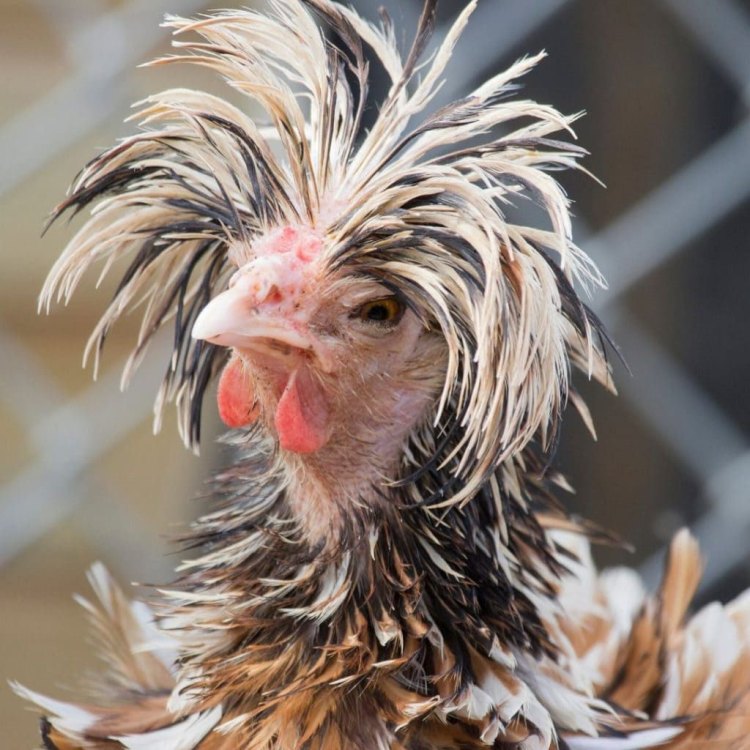
Gallus gallus domesticus
The Frizzle Chicken: An Unconventional and Unique Breed
Have you ever heard of a chicken that looks like it just got electrocuted? If not, then let me introduce you to the frizzle chicken. This charming and quirky breed is unlike any other, with its frizzled feathers and lively personality. In this article, we will dive deep into the world of the frizzle chicken and discover what makes it such an interesting and unique breed.The frizzle chicken, also known as the frizzled chicken, is a small to medium-sized domestic chicken that originated in Asia PeaceOfAnimals.Com. It is believed to be a cross between the Silkie bantam and the Cochin breed, both known for their fluffy feathers. Frizzling is a genetic trait that results in tightly curled or frizzled feathers, giving the chicken a distinct and unusual appearance.
The Basics: Size, Lifespan, and Reproduction
The frizzle chicken, like most chicken breeds, comes in various sizes, with adult birds ranging from small to medium-sized. They can weigh anywhere from 2-6 pounds, depending on their breed.On average, frizzle chickens have a lifespan of 5-10 years, with some living up to 15 years if well cared for. This makes them great long-term companions and perfect for those looking for a feathered friend to keep around for a while.
When it comes to reproduction, frizzle chickens are sexual, meaning they require both a male and a female for successful breeding. They are known to be good mothers, caring for their young chicks until they are old enough to fend for themselves.
Their Unique Reproductive Behavior
One of the most interesting behaviors of frizzle chickens is their reproductive behavior Flying Fish. Just like all chickens, they lay eggs, but their eggs may have a slight twist - quite literally! Due to the frizzling gene, some frizzle chickens may produce eggs with frizzled shells, something you don't see every day.On average, frizzle chickens lay about 150-200 eggs per year, with each egg weighing around 60 grams. Their eggs are smaller in size compared to other chicken breeds, but they make up for it in their quirky appearance. Their eggs can come in various shades, from white to brown, making them a beautiful addition to any egg basket.
Sounds and Calls: Variety is The Spice of Life
Just like how every chicken breed has its distinct sound or call, the frizzle chicken is no exception. However, with frizzle chickens, the variety is what makes them stand out. Depending on their breed, they can make a range of sounds, from the classic clucking to high-pitched squawks and even some crowing. Some frizzle chickens may even mimic human sounds, making them quite the talkative breed.Their Non-Migratory Lifestyle
Unlike some bird species, frizzle chickens are non-migratory, meaning they stay in one place throughout their lives. This makes them ideal for backyard or urban farming, as they will not wander off. They are also quite resilient and can adapt to a variety of environments, making them a low-maintenance pet.Social Creatures: Flocked Together
Frizzle chickens are social creatures and prefer to live in flocks. They thrive when they have a group of fellow chickens to interact with, and it's not uncommon to see them snuggled up together for a nap or a dust bath. This social behavior also extends to humans, making them excellent pets for families or individuals who want a companion.Curious and Social Behavior
One of the most charming traits of the frizzle chicken is its curious and social behavior. They are known to be friendly and curious creatures, always eager to explore their surroundings. This makes them fun and interactive pets to have, as they will follow you around the yard, eager to peck at whatever catches their fancy.Threats and Conservation Status
Unfortunately, just like any other animal, frizzle chickens also face threats. Their small size makes them vulnerable to predators such as foxes, raccoons, and birds of prey. They are also susceptible to diseases, which is why proper care and regular vet check-ups are crucial for their well-being.Interestingly, despite their unique appearance and traits, frizzle chickens are not evaluated for conservation status. This may be due to the fact that they are a domestic breed and do not exist in the wild. However, it is essential to ensure their preservation and responsible breeding to prevent their population from decreasing.
Their Impact on the Ecosystem
You may be wondering, how do frizzle chickens, with their frizzled feathers, impact the ecosystem? Surprisingly, they do more than just add to the diversity of the animal kingdom. Frizzle chickens play a crucial role in seed dispersal and insect control. As they roam around, they disturb the ground and spread seeds, helping with the germination of plants. They also peck at insects, keeping pest populations under control, which makes them valuable for organic farming and gardening.Human Use: More than just Eggs, Meat, and Feathers
Frizzle chickens are not only popular for their quirky appearances but also for their multipurpose uses. Like most chicken breeds, they are raised for their eggs, meat, and feathers. However, their distinctive frizzled feathers make them popular in the show chicken community. They are also used for feather crafts, such as making quill pens and fishing lures, and their feathers are used to make decorative accessories like earrings and hats.Interesting Facts about Frizzle Chickens
- Frizzling is a genetic trait resulting in tightly curled or frizzled feathers.- Frizzle chickens come in various breeds, including the Cochin frizzle, Silkie frizzle, and the Sizzle (a cross between a Silkie and a frizzle).
- Frizzle chickens can be found all around the world, from Asia, Europe and North America.
- Frizzle chickens are hardy and can handle colder climates, making them suitable for farming in colder regions.
- Western cultures were first introduced to frizzle chickens in the 1800s, but they've been around for centuries in Asia.
In conclusion, frizzle chickens may not be your ordinary chickens, but their unique appearance, behavior, and uses make them one-of-a-kind. They are fun and entertaining pets to have, and their impact on the ecosystem is far-reaching. So, the next time you hear the term frizzle chicken, you'll know just how extraordinary they truly are.
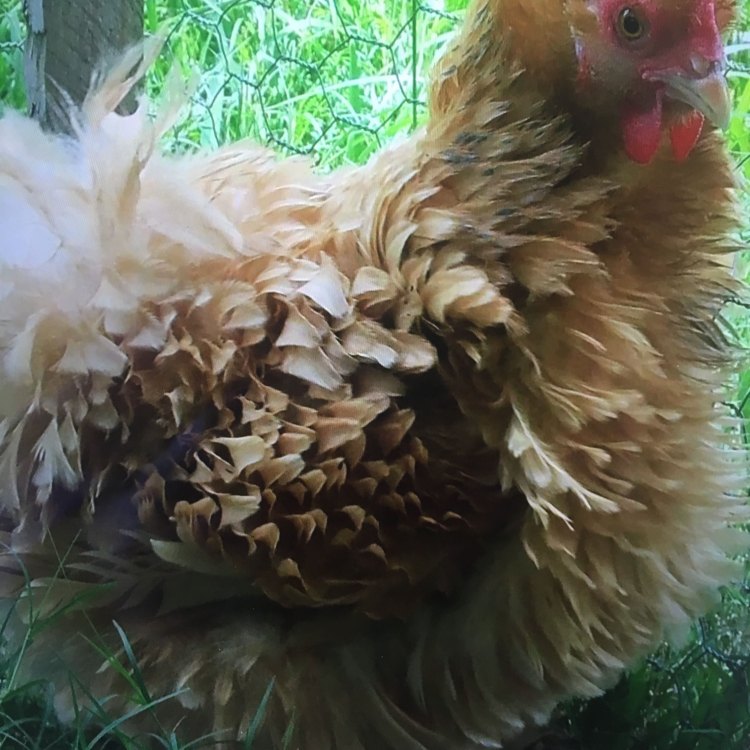
The Marvelous Frizzle Chicken: A Fascinating Bird from Farmlands to Backyards
Disclaimer: The content provided is for informational purposes only. We cannot guarantee the accuracy of the information on this page 100%. All information provided here may change without prior notice.



